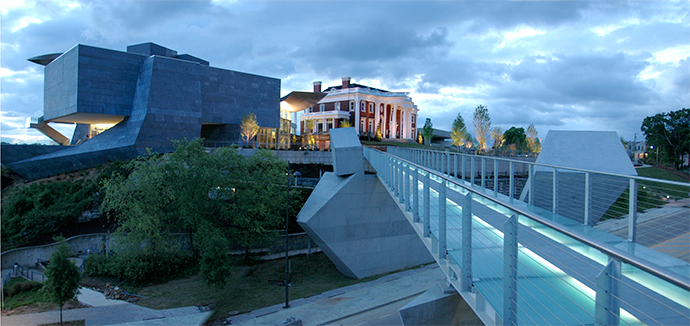Guarded jubilation. Careful celebration.
Call it what you will, it’s been an odd week in the Tennessee automotive sector.
On July 10, despite a close vote earlier this year
against establishing a UAW local at the Volkswagen plant in Chattanooga, the UAW established one anyway, announcing the formation of UAW Local 42.
“We’ve had ongoing discussions with Volkswagen and have arrived at a consensus with the company,” said Gary Casteel, the UAW’s secretary-treasurer, who previously served as director of UAW Region 8 covering the South. “Upon Local 42 signing up a meaningful portion of Volkswagen’s Chattanooga workforce, we’re confident the company will recognize Local 42 by dealing with it as a members’ union that represents those employees who join the local. As part of this consensus, the UAW is committed to continuing its joint efforts with Volkswagen to ensure the company’s expansion and growth in Chattanooga.”
Concurrent with that announcement, and following their recent withdrawal of objections over how the election was held in February, UAW officials renewed requests for the State of Tennessee to extend the economic incentives necessary for Volkswagen to add a new product line at the Chattanooga plant.
Four days later, VW reassured an entire region and state, as company executives, weary and hoarse from exhorting
Die Mannschaft to the World Cup title, convened a transatlantic press conference in Wolfsburg, Germany, and Chattanooga to announce a $600-million, 2,000 job expansion at the Tennessee complex. The company will also establish for the first time a 200-engineer National Research & Development and Planning Center of the Volkswagen Group of America for project coordination in the North American market. Existing areas in production will be used for the assembly of the midsize SUV, with a planned 538,000-sq.-ft. (50,000-sq.-m.) expansion.
Some elected officials in Tennessee threatened in February that a successful union vote should be accompanied by withdrawal of state incentives for VW’s growth in the state. And documents obtained by journalists revealed that Gov. Bill Haslam’s offer of $300 million in incentives for the looming deal said the perks were available if labor discussions “concluded to the satisfaction of the state of Tennessee.” US House Democrats opened an investigation into the matter in April. VW is known for its collaboration with works councils in Germany and abroad, and had expressed no objection to the UAW activity.
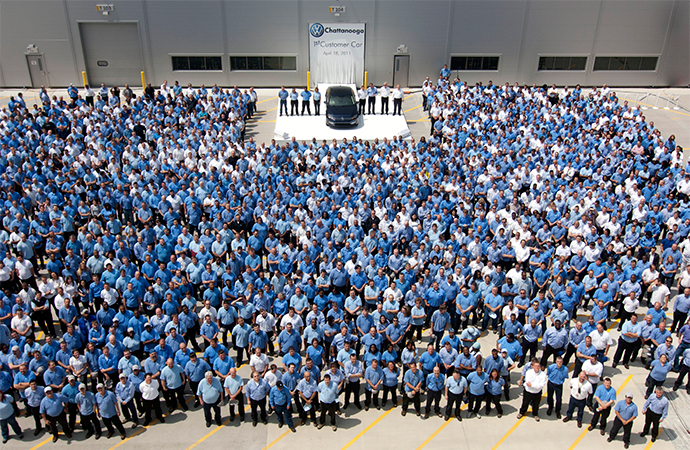
“As Volkswagen’s works council partner, the UAW’s role is to encourage job creation and promote job security so that Volkswagen employees can achieve the American dream and Chattanooga’s economy can prosper,” Casteel said last week. “We withdrew objections to end the controversy and put the focus where it belongs: obtaining the economic incentives necessary to ensure the growth of Volkswagen in Chattanooga and the addition of a new product line.”
VW said the overall North American investment to support a new production line for its midsize SUV was $900 million, but did not respond to a question from Site Selection as to where the other $300 million is going. The UAW did not respond to repeated emails and voicemails seeking comment after the investment announcement.
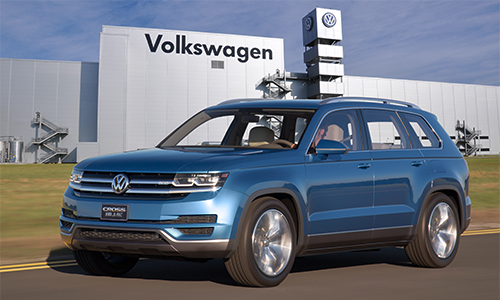
Since the Monday announcement this week, the company and local officials have said some of the R&D center jobs will be located not at the Enterprise South plant site, but in downtown Chattanooga, where the automaker will also erect a $12-million welcome center, all part of a new innovation district. According to local press reports, Chattanooga Mayor Andy Berke had helped convince VW to bring the welcome center and R&D downtown instead of locating off the Interstate-75 interchange near the plant, well outside the city. At a Brookings Institution event in June coinciding with the release of a new report on such innovation districts, Berke said, “Our future is based on being the place that figures out how midsized southern cities tap into the innovation century and the role that we play.”
But the evolving roles played by management and workers may also be key to achieving a globally competitive level of workplace innovation.
Conciliation, Compromise, Collaboration
Couched a few paragraphs down in the big project announcement Monday was the news that VW’s Chairman of the Group Works Council of Volkswagen, Bernd Osterloh, will join the Board of Directors of Volkswagen Group of America, Inc.
“We are pleased that Mr. Osterloh has declared his willingness to play a concentrated role in shaping our US strategy in the future,” said Prof. Dr. Martin Winterkorn, CEO of Volkswagen AG. “He will represent the views of the workforce. This is in line with the codetermination culture of Volkswagen, which is one of our key success factors.”
(Pause here to read between the lines.)
“It is important for us that our colleagues in the US know that we also care about the production site and the employment in Chattanooga,” said Osterloh. “I am looking forward to my work on the Board. I am determined to uphold the interests of Volkswagen employees in Chattanooga. The North American market offers considerable opportunities; in my opinion, these have not been pursued with sufficient consistency in the past. With today’s decision to produce the midsize SUV in the USA, we are taking a key step.”
The company has pledged to invest more than $7 billion in North America by 2018, as it aims to deliver 800,000 vehicles to the US by that same year. The moves come as high labor costs in Germany force some belt tightening. VW and its Chinese JV partner FAW also this week unveiled the news they open two new plants in Qingdao in Shandong Province and Tianjin with an investment of €2 billion (US$2.7 billion). While VW aims to deliver 800,000 vehicles to the US by 2018, its JV’s existing plants in China delivered about 1.51 million vehicles between January and May 2014 alone.
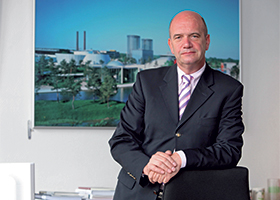
US Sen. Bob Corker, a former mayor of Chattanooga, was one of the elected officials whose public statements decrying union incursion into his state were part of the US House inquiry into whether the UAW election was unduly influenced by outside parties. Monday he was one of the men in suits at the podium, sounding appropriately humble and nearly as weary as the World Cup revelers, but for different reasons. Just like on a modern car assembly line, his words were carefully chosen and placed in studied and precise order.
“I deeply appreciate Volkswagen’s significant long-term commitment to the hometown and state that I love,” Sen. Corker said, remembering the phone call he received nearly six years ago to the day from the VW board room in Germany when they originally chose Chattanooga. “I want to thank our outstanding governor, who has done such a great job showing steady leadership during a lot of trials and tribulations.” Corker paid tribute to the mayors of the city and Hamilton County as well, “but especially I want to thank the wonderful workers at VW, whose commitment to excellence is what made VW decide they wanted to make this commitment.”
(Pause again.)
The UAW has made equally conciliatory and uncomfortable sounds. Speaking to the Automotive News World Congress in January, then-UAW President Bob King said the organization’s four priorities for this century included supporting worker organizing efforts in places such as the South, and connecting with global labor unions: “The German union IG Metall and German works councils have been incredible in their support and work for American workers to have the right to representation at German-owned facilities,” he said. But the first priority he mentioned was nothing less than partnership and collaboration with employers.
“The old adversarial culture of the 20th century has been replaced by a new model of labor/management relations that embraces our joint mission of shared success,” he said, citing successfully negotiated contracts with domestic and foreign-owned carmakers, as well as with heavy truck and agricultural equipment manufacturers.
Shared success is an idea reverberating throughout the Chattanooga region: A University of Tennessee research study released in 2013 showed that Volkswagen Chattanooga has been responsible for the overall creation of 12,400 full-time jobs in the region, is responsible for $643.1 million in annual income and has attracted 17 supplier companies to the area. VW says the State of Tennessee can expect estimated additional receipts of about US$12 billion as a result of the Chattanooga plant over a period of about 30 years.
The New Pragmatism
So could the future be more about chilling out than getting fired up?
Jacob Funk Kirkegaard is a senior fellow at the Peterson Institute for International Economics in Washington, D.C., and a senior associate with Rhodium Group, whose expertise lies in FDI, structural economic reform and labor and demographic trends. (And yes, he says, he is a distant descendant of philosopher Søren Kierkegaard.) In February he authored a
pointed commentary
following the UAW vote in Tennessee entitled “Volkswagen Gets a Lesson About American Exceptionalism,” where he noted the company’s standard works council approach (with China the exception) and critiqued the “arrogance and ignorance” of a blanket anti-union stance that doesn’t allow for nuance, nor respect for the strategic thinking of one of the most successful car companies in the world. He concluded that the UAW vote “illustrates how all sides must evolve, if America’s manufacturing sector is to learn from the success of a more inclusive and German version of capitalism.”
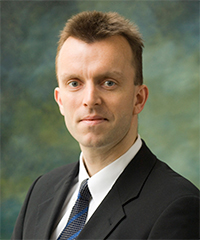
That evolution may now be at hand. In an interview with Site Selection this week, Kirkegaard says the announcement by VW shows it was always more focused on strategic factors than political ones. Significantly, though it’s getting a healthy incentive package from the state and local authorities (see sidebar box below) VW waived its right to claim certain statutorily available tax credits directly related to the expansion – almost as if to say, “Enough already. We’re going ahead with this because it’s the right thing to do, and don’t wish to be bothered by the political grandstanding.”
“Yes, that’s exactly how you should interpret it,” says Kirkegaard, ” ‘and we’re willing to pay for the privilege.’ “
Kirkegaard says unions must navigate a perceptual minefield in the southern United States, where many “view the UAW as essentially a foreign import from ‘deep blue” Detroit,” he says, referencing political persuasion and not VW’s new “Think. Blue” branding. The vote might indeed have been swayed by political brinksmanship, he says, but there’s also simply a long-term challenge for the UAW of “convincing the local population and workforce that they’re actually there to look out for them, rather than union bosses elsewhere in the country, or all sorts of other causes the union might be pushing nationally. It’s an attempt to have a more decentralized UAW, if you like, or certainly one with a stronger local presence, rather than this impression of being an alien entity in a place like Tennessee.”
The Package
The Tennessee Dept. of Economic and Community Development, the City of Chattanooga and Hamilton County all contributed to the incentives for the new VW expansion:
- A $165.8-million grant from the State of Tennessee will go towrad costs associated with site development and preparation, infrastructure, production equipment acquisition and installation, and facility construction. The state will grant another $12 million for new employee training.
- $52.5 million split equally between the City of Chattanooga and Hamilton County will go toward up-front expenses for the plant addition. According to the Chattanooga Times-Free Press, “VW will pay back $2.5 million in an economic development fee each year for the next 10 years to repay about half of the loan and VW will transfer 300 acres at Enterprise South industrial park back to the city and county.”
- Property tax breaks of $33 million are expected to be offered for the expansion over the next 10 years.
- The company is expected to be able to take advantage of TVA’s Valley Incentive and Valley Advantage programs.
- Volkswagen Group of America has agreed to waive its right to certain statutory incentives, but will pay more than $1.4 million in additional school property taxes.
The UAW is not purely alien in the state: It’s long had a presence in Spring Hill, where GM has operations.
Kirkegaard also says there are quite a few degrees of separation between a German works council or union and the way unions operate – or are perceived to operate – in the States.
“There is a big difference between the German IG Metall and things like the jobs bank at GM,” he says. “Some of the practices they negotiated in Detroit clearly helped accelerate the demise of the Big Three.” The German way, like the approach of its
futbol squad, is “a system that shapes a certain degree of pragmatism,” and includes worker representation on the board. That requirement means the union from the start has a bigger stake in the overall health of the company.
“The idea that a German works council would ever have suggested something like the jobs bank is mad,” he says. “They would have recognized it was an enormous burden on the firm.”
Kirkegaard says VW’s history in Germany demonstrates fundamentally constructive labor-management relations, based on that pragmatism.
“They want to be able to produce without the fear of disruptions from strikes, and in return they’re willing to pay good wages, benefits, and spend a lot of money on training,” he says, in a description that sounds awfully similar to what’s been unfolding in Tennessee for six years already,
sans the UAW. “It’s quite different from the highly adversarial management-union relations you saw in Detroit in recent years. Codetermination is part of a legal requirement in Germany. It’s built into the management DNA of any German company, but VW more than most … This announcement is an extension of how VW operates, very successfully, around the world, clearly suggesting that from the perspective of the company, by adopting a pragmatic, conciliatory approach over time, you can have very successful long-term relations.”
That seems to be the direction the UAW is headed.
“The UAW today,” he says, “is a more pragmatic beast than it was pre-2008.”
Does the same hold true for all parties in Tennessee and other right-to-work states who seek FDI from companies bearing no union-related emotional baggage? That remains to be seen.
